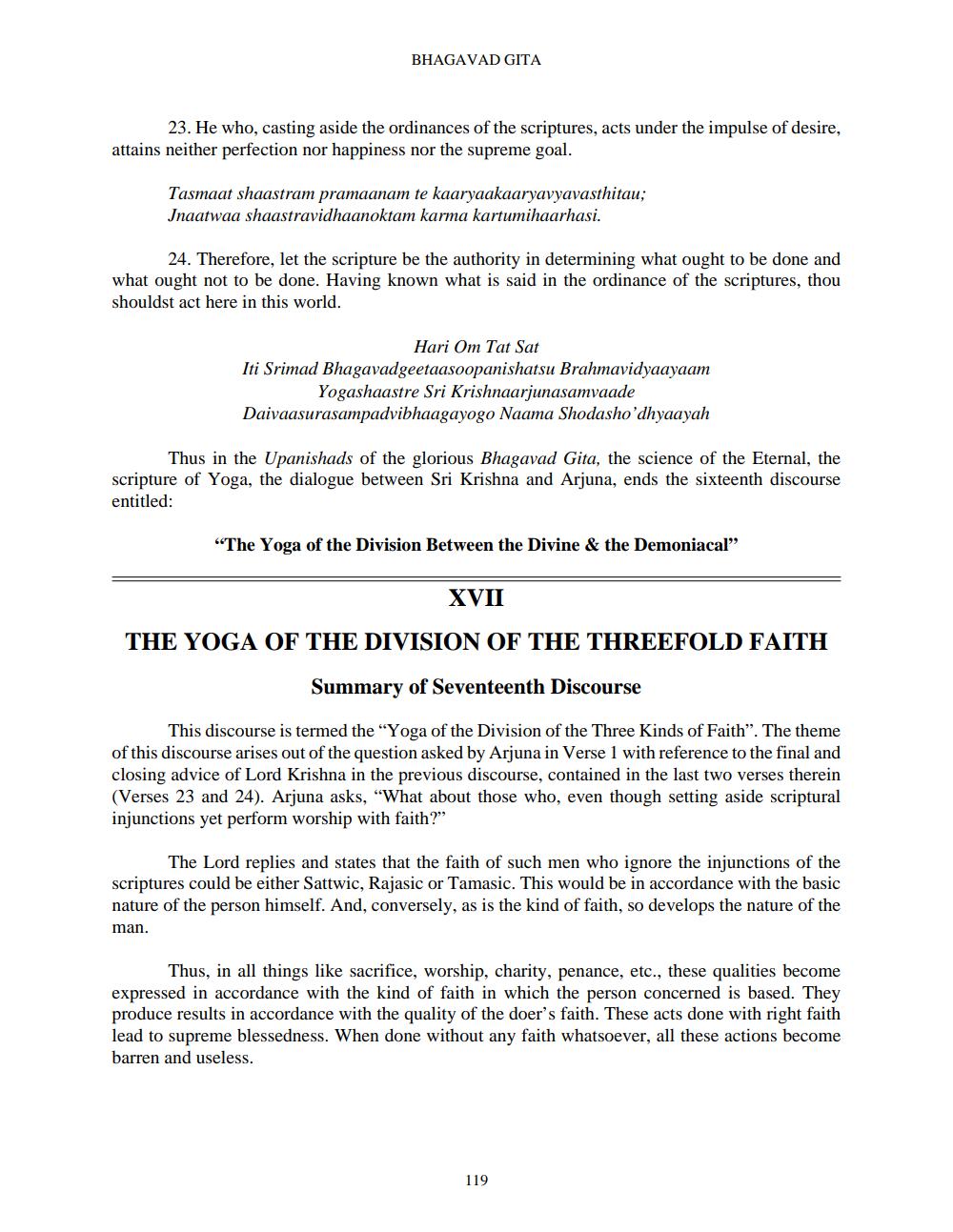________________
BHAGAVAD GITA
23. He who, casting aside the ordinances of the scriptures, acts under the impulse of desire, attains neither perfection nor happiness nor the supreme goal.
Tasmaat shaastram pramaanam te kaaryaakaaryavyavasthitau: Jnaatwaa shaastravidhaanoktam karma kartumihaarhasi.
24. Therefore, let the scripture be the authority in determining what ought to be done and what ought not to be done. Having known what is said in the ordinance of the scriptures, thou shouldst act here in this world.
Hari Om Tat Sat Iti Srimad Bhagavadgeetaasoopanishatsu Brahmavidyaayaam
Yogashaastre Sri Krishnaarjunasamvaade Daivaasurasampadvibhaagayogo Naama Shodasho'dhyaayah
Thus in the Upanishads of the glorious Bhagavad Gita, the science of the Eternal, the scripture of Yoga, the dialogue between Sri Krishna and Arjuna, ends the sixteenth discourse entitled:
"The Yoga of the Division Between the Divine & the Demoniacal”
XVII THE YOGA OF THE DIVISION OF THE THREEFOLD FAITH
Summary of Seventeenth Discourse
This discourse is termed the "Yoga of the Division of the Three Kinds of Faith". The theme of this discourse arises out of the question asked by Arjuna in Verse 1 with reference to the final and closing advice of Lord Krishna in the previous discourse, contained in the last two verses therein (Verses 23 and 24). Arjuna asks, "What about those who, even though setting aside scriptural injunctions yet perform worship with faith?"
The Lord replies and states that the faith of such men who ignore the injunctions of the scriptures could be either Sattwic, Rajasic or Tamasic. This would be in accordance with the basic nature of the person himself. And, conversely, as is the kind of faith, so develops the nature of the man.
Thus, in all things like sacrifice, worship, charity, penance, etc., these qualities become expressed in accordance with the kind of faith in which the person concerned is based. They produce results in accordance with the quality of the doer's faith. These acts done with right faith lead to supreme blessedness. When done without any faith whatsoever, all these actions become barren and useless.
119




